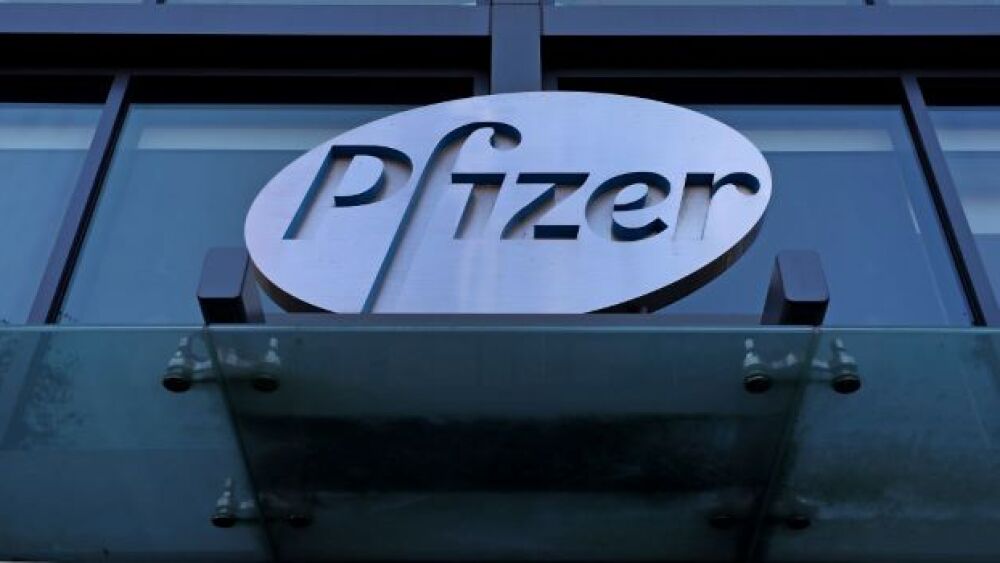Pfizer has been accused of bullying governments in Latin America over coronavirus disease 2019 (COVID-19) vaccine negotiations, a recent investigative article revealed.
David L. Ryan/The Boston Globe via Getty Images
Pfizer has been accused of bullying governments in Latin America over coronavirus disease 2019 (COVID-19) vaccine negotiations, a recent investigative article revealed.
The accusations involve the company’s requests that some countries establish sovereign assets as a guarantee against the costs associated with future legal suits made on behalf of citizens who experience an adverse event after the shot.
The story, published in The Bureau of Investigative Journalism, states that demands made by the global pharmaceutical giant Pfizer resulted in a three-month delay in a vaccine deal for one country. In the case of Argentina and Brazil, the countries made no national deals with the company.
These slowdowns in deals may be leading to holdups in people receiving much-needed COVID-19 vaccines, particularly in areas with high levels of viral spread. Some experts believe this could lead to a delay in ending this pandemic, as analyses in the U.K. have found that treatment with the Pfizer vaccine have led to an approximate 70% drop in infections just after the first shot.
Argentina and officials from other countries in Latin America claim that negotiators on behalf of Pfizer demanded additional indemnity against civil claims citizens might file if they report experiencing vaccine-related adverse effects. Sovereign assets are being requested by the company, including military bases and embassy buildings, as a guarantee against potential legal costs.
According to the investigative article, an official from an unnamed country has described Pfizer’s demands as “high-level bullying” and noted that the country’s government perceived it was being “held to ransom” before it could receive a supply of COVID-19 vaccines.
Legal experts are reportedly raising concerns that the company’s demands are quickly accumulating to an abuse of power.
Despite this prevailing perception amongst these government officials, most government organizations across the world are offering Pfizer (and other COVID-19 vaccine manufacturers) indemnity.
In these cases, the government would be responsible for paying compensation to a citizen who experiences an adverse effect following vaccination, regardless of whether the citizen files a claim against the manufacturer itself. This is generally the case for most vaccines that are released during a pandemic; the AS03-adjuvanted H1N1 influenza vaccine, for instance, was recently linked to an increased risk of narcolepsy.
“Pharmaceutical companies shouldn’t be using their power to limit life-saving vaccines in low- and middle-income countries,” according to a statement made by Lawrence Gostin, director of the World Health Organization’s Collaborating Center on National and Global Health Law and published in The Bureau of Investigative Journalism. “[This] seems to be exactly what they’re doing.”
Since the beginning, Pfizer has been collaborating with over 100 countries as well as supranational organizations on COVID-19 vaccine deals. The company has reached supply agreements with a total of nine Latin American and Caribbean countries, including Chile, Colombia, Costa Rica, Dominican Republic, Ecuador, Mexico, Panama, Peru and Uruguay. Detailed terms of these supply deals have not yet been fully disclosed.
“Some liability protection is warranted, but certainly not for fraud, gross negligence, mismanagement, failure to follow good manufacturing practices,” said Gostin in The Bureau article. “Companies have no right to ask for indemnity for these things.”
Because of the failed negotiations, many Argentinian citizens will not have access to Pfizer’s COVID-19 vaccine. Instead, these citizens will have the option to receive Russia’s Sputnik V vaccine, AstraZeneca’s vaccine and vaccines delivered via Covax. Currently, the Argentina government is in talks with Moderna, Sinopharm and CanSino to acquire their COVID-19 shots.





